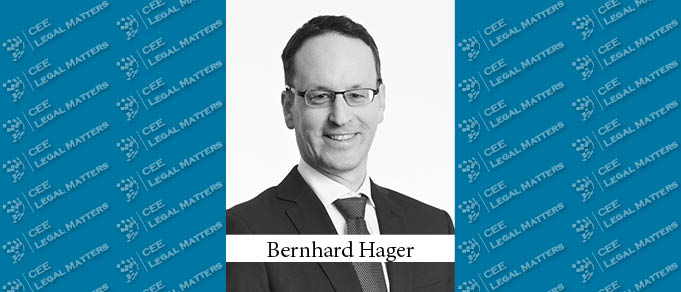Slovakia’s biggest challenges, in light of the ongoing war in the neighboring country, are dealing with sanctions and seeking alternative sources of supplies for its automotive industry, and implementing renewable energy projects, according to Eversheds Sutherland Managing Partner Bernhard Hager.
"The recent war has created different challenges for Slovakia," Hager explains. "First of all, we are dealing with the sanctions-related implications. In addition, the country recently adopted new labor regulations, authorizing refugees to work here. Both the state and companies are trying to adapt to the new reality."
According to Hager, a recent major change is related to renewable energy. "Slovakia recently amended the law, which might lead to renewable energy projects being finished in seven to eight years," he says. "The law lifted the limitation on the size of projects, creating a new wave of renewable energy. We already had a proposal, before the war, as we witnessed increased electricity prices all over Europe, which led to the canceling of many contracts. However, the recent developments accelerated the process."
"Another recurring issue is companies’ inability to undertake contractual obligations under the agreed price," Hager points out. "The increase in prices, for instance due to suppliers’ inability or unwillingness to deliver products at the agreed price, leads to disputes. Companies frequently opt to declare bankruptcy or pay the penalty, rather than comply with the terms of the original contracts. As a result, we see many cases of contracts being renegotiated or tenders being reopened by public bodies."
"This affects real estate as well," he adds. "Construction companies are frequently not able to finish the construction of a property and, as a result, that affects developers, who have already sold the house."
Hager says that the automotive sector is also suffering, due to recent developments. "Slovakia remains a champion in the automotive sector per capita," he points out. "While the automotive industry is still operating as usual, the recent sanctions have raised the question of whether this will be sustainable. The automotive industry traditionally purchased raw materials like steel and metals from Russia. Starting from June, buying steel from Russia is prohibited, which means we'll have to find an alternative market. Adapting to this might be a challenge considering the fact that, in the past, we have always depended on Russia."
"Another major topic of discussion is the Recovery and Resilience Facility," he adds. "These projects are now starting, and public bodies and companies are seeking assistance for getting state aid."
Overall, Hager highlights that, at the moment, M&A remains busy. "There are a number of M&A projects in the pipeline, as clients are still interested in investing here. However, it seems that global investors are looking for a safer market in Europe. We suspect that interest in the Slovakian market will decrease with time if the war is not resolved soon," he concludes.
